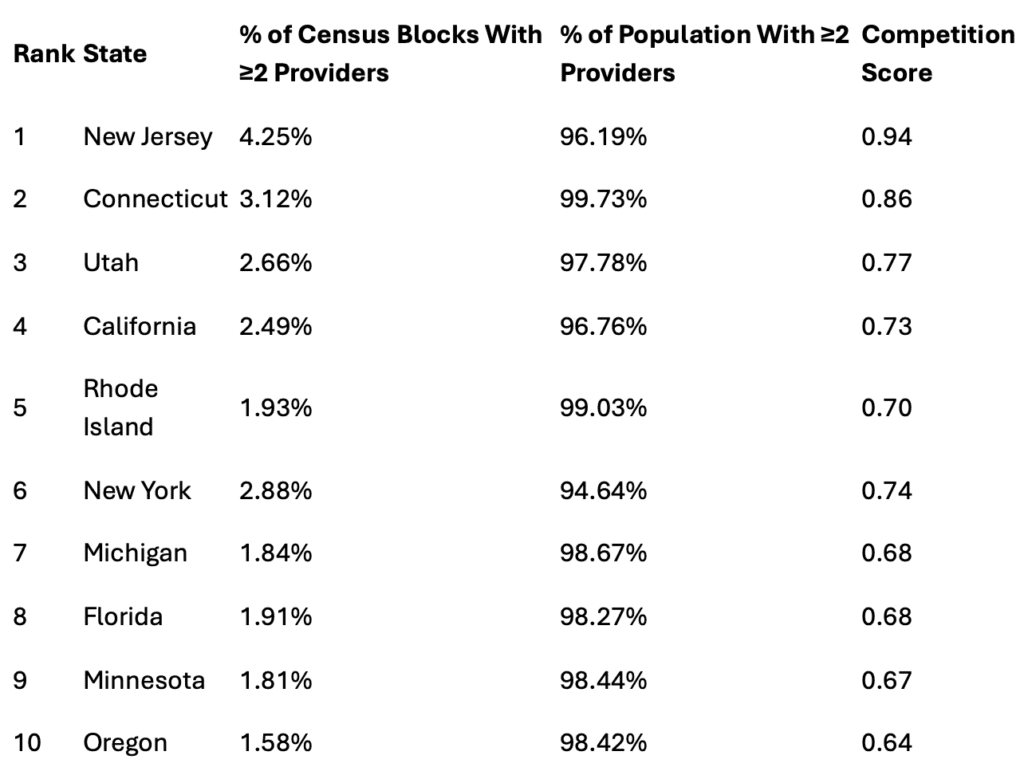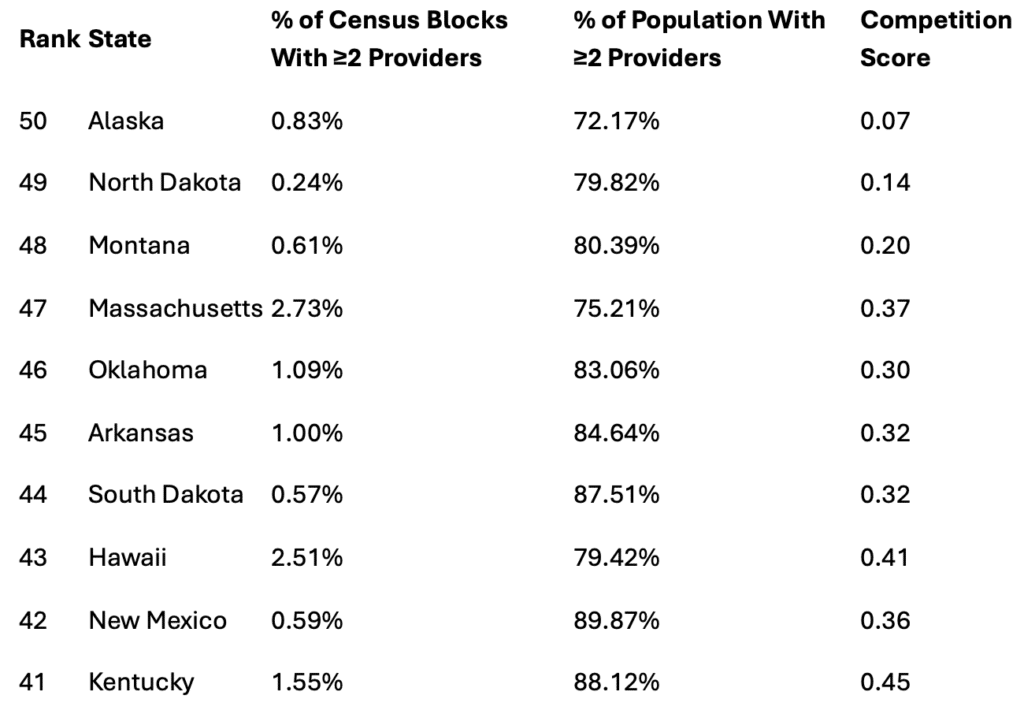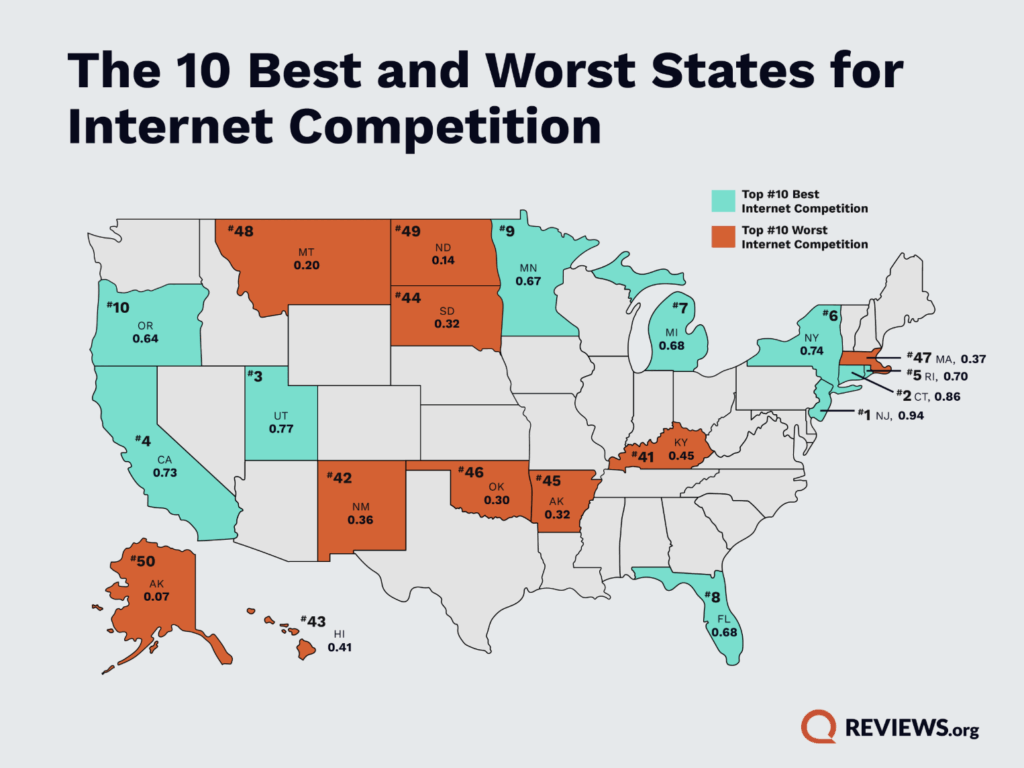Folks who feel it is vital to have access to two wired internet providers should look for a home in New Jersey, while those who don’t care may be happy in Alaska, according to a broadband competition report from Reviews.org. In either case, these people — and folks in the other 48 states — are far likelier to have at least two wired options than to live in a wired monopoly.
“Many leading states (such as Utah, New York, Connecticut, and Rhode Island) were early fiber internet adopters,” said Brianne Sandorf, a staff writer for Reviews.org and author of the report, in a prepared statement about the broadband competition report. “That’s thanks to municipal-run networks, early rollouts of Verizon Fios across the East Coast, and state broadband initiatives — mainly in pockets of high population density.”
Sandorf pointed out that many of the high-performing states are closely tied to the technology sector. She said that it is a surprise that New Jersey, Connecticut, and Utah finished ahead of California, home of Silicon Valley.
Here are the 10 states with the highest level of broadband competition. To measure competitiveness, researchers looked at the percentage of customers in the state that have at least two wired broadband providers from which to choose:
 Source: The U.S. Internet Monopoly Map: States and Cities With the Least Internet Competition
Source: The U.S. Internet Monopoly Map: States and Cities With the Least Internet Competition
And the 10 least competitive states:
 Source: The U.S. Internet Monopoly Map: States and Cities With the Least Internet Competition
Source: The U.S. Internet Monopoly Map: States and Cities With the Least Internet Competition
The researchers also listed the rankings for more than 300 metro areas.
 Source: The U.S. Internet Monopoly Map: States and Cities With the Least Internet Competition
Source: The U.S. Internet Monopoly Map: States and Cities With the Least Internet Competition